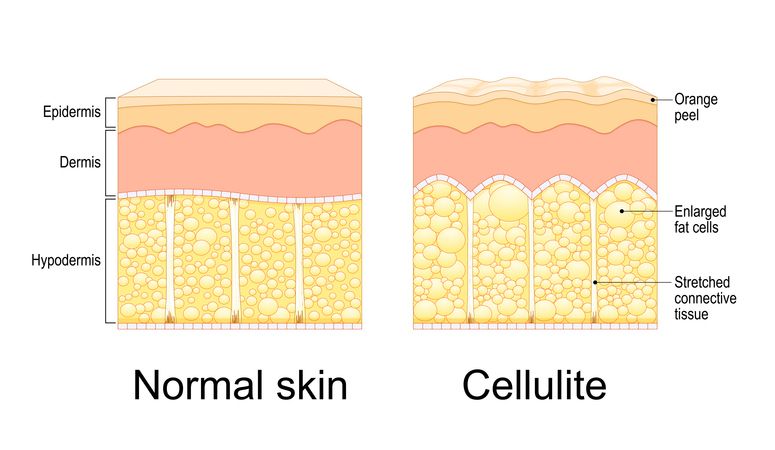Author: Natalie Ng|Updated: 29 April 2025
You’ve probably heard a lot of things about acne—like chocolate causes breakouts or toothpaste can clear your skin. Most of these are just common acne myths, and following them can actually make acne worse. If you’ve got acne prone skin, popping pimples or using harsh home remedies might seem like quick fixes, but they often lead to more irritation, inflamed acne, or even permanent scarring. These habits can push bacteria deeper, damage your skin, and slow down the healing process. The truth is, acne develops because of things like clogged hair follicles, excess oil, dead skin cells, and hormonal changes—not because your skin is dirty or you ate chocolate. We’ll break down the real causes of acne, explain what makes it worse, and talk about what actually helps—from topical medicated creams to laser treatments. Keep reading if you’re tired of the myths and want to understand how to treat acne the right way.

The Truth About Diet and Acne
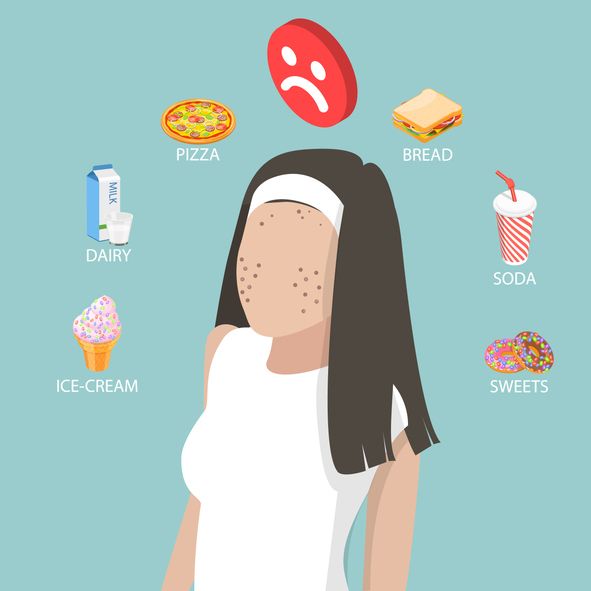
Some Foods Can Make Acne Worse
Diet doesn’t directly cause acne, but certain foods can trigger flare ups or make acne worse—especially if you already have acne prone skin. One of the biggest triggers is a high glycemic index diet. This includes sugary snacks, white bread, and processed carbs. These foods spike your blood sugar, which can lead to more oil production and inflamed acne.
Dairy Might Affect Your Skin
Some people notice more acne breakouts when they eat a lot of dairy. Milk and other dairy products contain hormones that may affect your own hormone levels. This can lead to clogged hair follicles and excess oil, which increases the chance of acne outbreaks, especially cystic acne.
Pay Attention to How Your Skin Reacts
You don’t need to cut out entire food groups. But if you notice breakouts after eating certain foods, it might be worth cutting back to see if your skin improves. Everyone’s skin is different. What causes acne for one person might not affect another.
Focus on Skin-Supporting Foods
Instead of following extreme diets, aim for balance. Eat more vegetables, fruit, whole grains, lean protein, and healthy fats. Staying hydrated also supports your skin’s natural healing process and helps manage acne development. A steady diet can help reduce acne flare ups and support long-term skin health.

Debunking Popular Home Remedies
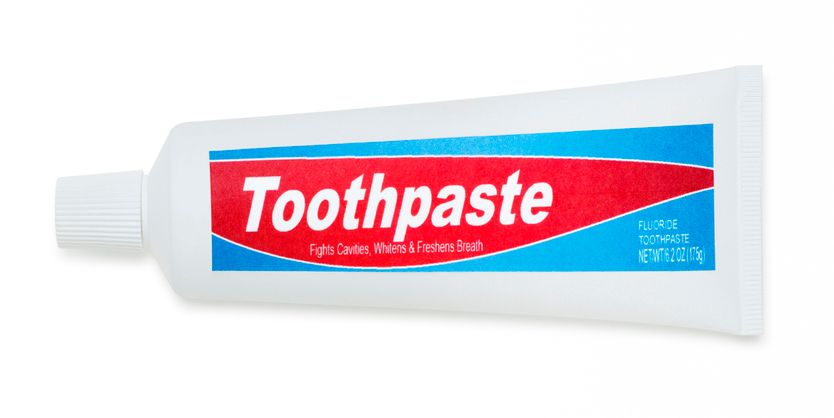
Toothpaste Can Cause More Harm Than Good
Toothpaste is one of the most common DIY acne treatments people try, but it’s not made for your skin. Ingredients like menthol, fluoride, and hydrogen peroxide can cause skin irritation, dryness, and even chemical burns. While it might seem like it dries out a pimple, it also inflames the area and slows the natural healing process. For acne prone skin, this can lead to further damage, increased redness, and potential scarring.
Lemon Juice Disrupts Your Skin’s Balance
Some believe lemon juice helps fade acne blemishes, but using it directly on your face can cause serious issues. Lemon is highly acidic, which throws off your skin’s pH level. This weakens the skin barrier and makes your skin more sensitive to sunlight, raising the risk of dark spots and long-term irritation. It also does nothing to treat the root causes of acne like clogged pores, dead skin cells, or excess oil.
Baking Soda Damages the Skin Surface
Baking soda feels gritty, so some use it as a scrub to treat acne breakouts. The problem is, its texture creates micro-tears in the skin, allowing bacteria to spread and making acne worse. It also strips the skin of natural oils, leading to more oil production and inflammation. For anyone managing acne, this can trigger more flare ups and set back progress toward clear skin.
Stick to Proven Ingredients
Instead of trying home remedies with no scientific support, focus on products with acne fighting ingredients that actually work. Topical medicated creams with benzoyl peroxide or salicylic acid help unclog pores, reduce bacteria, and calm inflamed acne. These are safer, more effective treatment options for managing acne development and avoiding further damage.
Read More
Book Now to Experience
Acne Treatment
1 Minute Self-Registration
Date should not be before minimal date

Common Cleansing Misconceptions
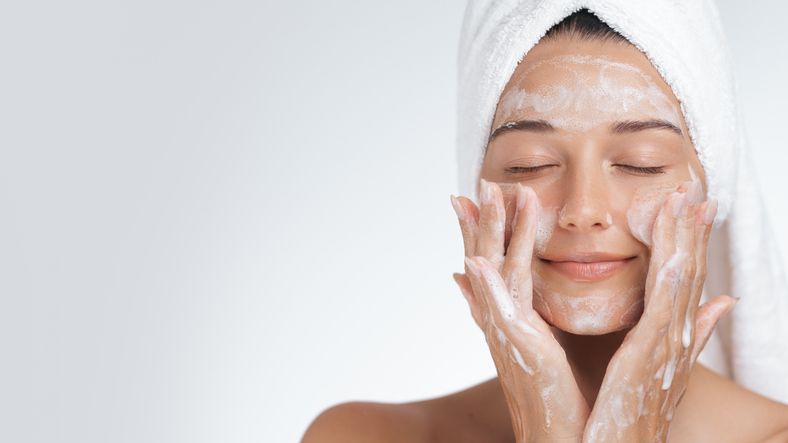
Over-Washing Can Make Acne Worse
A lot of people think that scrubbing hard or washing their face multiple times a day will help clear acne. But aggressive cleansing actually strips your skin of its natural oils. This causes the skin to produce even more oil, which can clog pores and worsen acne. It also weakens your skin barrier, leading to more skin irritation and flare ups.
You Don’t Need Harsh Products
You don’t need strong exfoliants, alcohol-based cleansers, or complicated routines to treat acne breakouts. These can dry out your skin and make acne prone areas more sensitive. Instead, use a gentle, non-comedogenic cleanser that won’t block your pores. Wash your face twice a day with lukewarm water and your fingertips—no need for rough washcloths or brushes.
Skip the Scrubbing
Scrubbing might feel like you’re getting a deeper clean, but it actually pushes bacteria and dead skin cells around, which can trigger more acne outbreaks. It also increases the chance of inflamed acne and permanent scarring, especially if you already have sensitive or damaged skin.
Try Double Cleansing if Needed
If you wear makeup or sunscreen daily, consider double cleansing. Start with an oil-based cleanser to break down products, then follow with your usual gentle face wash. This helps clear skin without over-drying it. And remember: acne isn’t caused by dirty skin. Acne develops for many reasons, including hormonal changes, excess oil, and clogged hair follicles—not poor hygiene.

Sunlight and Tanning: Separating Myth From Reality

UV Exposure Can Worsen Acne
It’s a common acne myth that sun exposure helps clear breakouts. While your skin might feel drier or look less red after tanning, this effect is temporary. UV rays actually trigger more oil production as your skin tries to protect itself, which can lead to acne flare ups and inflamed acne.
Tanning Increases the Risk of Dark Spots
Sun exposure makes post-acne dark spots more visible and harder to fade. This is especially true for acne prone skin. The sun increases melanin activity in areas where the skin is healing, which slows the natural healing process and can lead to uneven skin tone.
UV Damage Makes Scars Worse
If you’ve had severe acne, sunlight can make acne scars more noticeable. UV rays break down collagen, which your skin needs to repair itself. With less collagen, acne blemishes and pitted scars become harder to treat and more prominent over time.
Use Sunscreen Daily
To protect your skin health, use a non-comedogenic sunscreen every day—even if you have oily or acne prone skin. It helps prevent further damage, supports the skin barrier, and reduces the risk of permanent scarring. Sunscreen is an important part of any acne treatment routine, especially if you’re using topical medicated creams or getting laser treatments or chemical peels, which can make your skin more sensitive to sunlight.
Book Now to Experience
Acne Treatment
1 Minute Self-Registration
Date should not be before minimal date

The Science Behind Adult Acne Myths
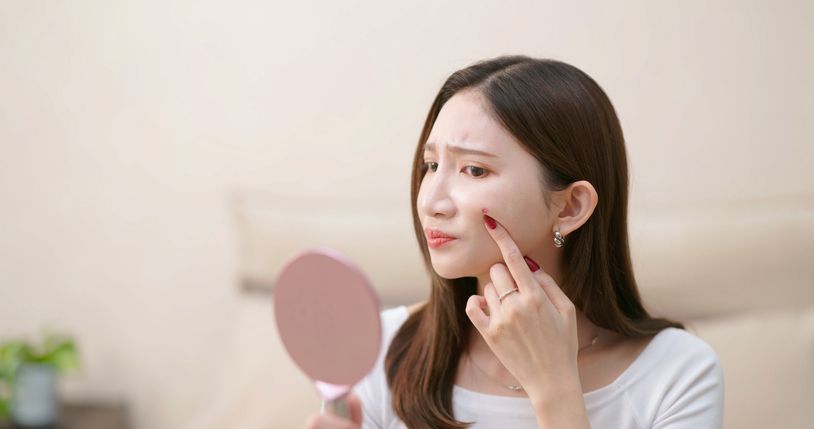
Adult Acne Is More Common Than You Think
Acne isn’t just for teenagers. Many adults, especially women, experience acne breakouts well into their 20s, 30s, and beyond. Hormonal fluctuations, stress, and certain medications can all trigger adult acne. This skin condition can appear around the jawline, chin, or cheeks and is often persistent.
Poor Hygiene Doesn’t Cause Acne
One common acne myth is that breakouts mean your skin is dirty. In reality, acne is caused by clogged pores, dead skin cells, and excess oil—not by how often you wash your face. Over-cleansing or using harsh products can actually damage your skin’s barrier, leading to skin irritation and more acne flare ups.
Food Isn’t Always the Enemy
Another common misconception is that chocolate consumption or greasy foods directly cause acne. While diet can affect skin, the science is more complex. High-glycemic foods and certain types of dairy may influence hormones that play a role in how acne develops, but there’s no direct link between eating chocolate and acne outbreaks.
Adult Acne Needs Targeted Treatment
Adult acne often requires a different approach than teenage breakouts. Treatments may include topical medicated creams, hormonal therapies, or medical treatment like laser treatments. These options target bacteria, reduce excess oil, and support the skin’s healing process. If you’re experiencing acne that won’t go away, it’s worth speaking to a professional to find an effective treatment plan for your skin type.

Why You Shouldn’t Pop Pimples
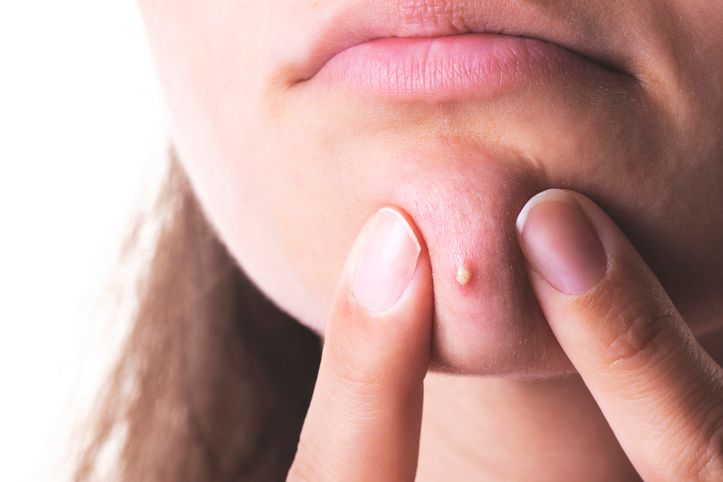
Popping Pushes Bacteria Deeper
It’s tempting to squeeze pimples, but doing so forces bacteria, pus, and dead skin cells deeper into the skin. This can lead to more inflamed acne, larger breakouts, and even cystic acne. What starts as a small blemish can quickly turn into something more painful and harder to treat.
It Slows the Healing Process
Popping pimples disrupts the skin’s natural healing process. When you break the skin, you create an open wound that takes longer to heal and increases the chance of permanent scarring or dark spots. This is especially risky for people with acne prone skin or frequent acne flare ups.
It Can Cause Long-Term Damage
Every time you pop a pimple, you increase your risk of potential scarring. Permanent scarring from acne doesn’t just affect how your skin looks—it can also make future acne treatment more difficult. Squeezing pimples can also lead to more skin irritation and worsen acne over time.
Use Safe Alternatives
Instead of popping, stick to skincare products that include acne fighting ingredients like salicylic acid or benzoyl peroxide. These help unclog pores, reduce inflammation, and treat breakouts without damaging your skin. If breakouts continue or become painful, seek treatment from a professional to avoid further damage.

The Truth About Acne Treatments
Not All Acne Treatments Work the Same
One of the most common acne myths is that you just need to “let acne run its course” or that home remedies alone will clear your skin. The truth is, acne—especially severe acne or cystic acne—often needs targeted care. Some people do well with topical medicated creams like benzoyl peroxide or salicylic acid, while others may need professional support to manage persistent acne or acne scarring.
Introducing New Beauty’s Acne Treatment
If you’ve tried over-the-counter products or chemical peels with little success, New Beauty’s Acne Treatment offers a more effective solution. It’s designed for acne prone skin and helps manage everything from blackheads and whiteheads to inflamed acne and deep acne lesions.
This treatment uses a dual spiral suction and drainage technology to remove excess oil, dirt, and dead skin cells from clogged pores. After clearing out these impurities, a medical-grade hydrating serum is infused into the skin to restore hydration, calm skin irritation, and boost collagen production—key for healing acne blemishes and preventing permanent scarring.
Why It Works
Unlike treatments that just dry out pimples, this method treats acne at the source—by deep-cleaning hair follicles, balancing sebum production, and supporting the natural healing process of the skin. This helps reduce acne breakouts and supports long-term improvement in skin health. It’s also non-invasive and painless, making it suitable for most people struggling with mild to severe acne.
Treatment Benefits
• Removes acne-causing bacteria and unclogs pores
• Reduces flare ups and future acne outbreaks
• Soothes redness and hydrates sensitive or inflamed areas
• Improves textured skin and supports collagen repair
• Safe alternative to harsh acne medications and scrubs
• Helps fade dark spots left by past breakouts
If you're tired of common myths about acne that lead to more harm than help, it’s time to focus on what works. The Acne Treatment is a practical, proven solution that clears acne without damaging your skin barrier.
Book your Acne Treatment now and take the next step toward clear, healthy skin.
New Beauty's Acne TreatmentBook Now to Experience
Acne Treatment
1 Minute Self-Registration
Date should not be before minimal date
FAQ
Does Using Makeup While Having Acne Make Breakouts Worse?
Using makeup doesn't automatically worsen acne, but your choice of products matters. You'll want to select non-comedogenic makeup that won't clog your pores. Clean your brushes regularly and never sleep with makeup on. If you're dealing with active breakouts, mineral-based foundations and concealers can provide coverage while letting your skin breathe. Just remember to remove everything thoroughly at day's end.
Can Birth Control Pills Help Treat Hormonal Acne?
Like a hormone-balancing superhero, birth control pills can indeed be your ally in the fight against hormonal acne. You'll find that many oral contraceptives work by regulating the androgens that trigger those pesky breakouts. While not all pills are created equal, FDA-approved options containing both estrogen and progestin can help clear your skin. Just remember to consult your healthcare provider to find the perfect match for your body's needs.
Is It True That Stress Directly Causes Acne Breakouts?
Yes, stress can directly trigger acne breakouts because it increases your body's production of cortisol and other hormones that stimulate your oil glands. When you're stressed, these hormones cause your skin to produce more sebum, which can clog your pores and lead to breakouts. While you can't always control life's stressors, you can manage stress through meditation, exercise, or other self-care practices to help minimize acne flare-ups.
Does Sleeping Position Affect Acne Formation on Specific Facial Areas?
If you're a side sleeper who's noticed more breakouts on one cheek, you're not alone. While there's no definitive scientific evidence linking sleeping positions to acne patterns, your pillowcase can be a breeding ground for bacteria and oil transfer. You'll want to switch pillowcases every 2-3 days and consider using silk or satin cases, which create less friction against your skin and absorb less moisture.
Are Prescription Antibiotics the Best Long-Term Solution for Severe Acne?
Prescription antibiotics aren't your best long-term solution for severe acne, despite their initial effectiveness. You'll likely develop antibiotic resistance over time, and they don't address the root causes of your acne. Instead, you should explore treatments like retinoids, hormone therapy, or isotretinoin with your dermatologist. These options target the underlying factors and can provide more sustainable results without compromising your body's natural bacterial balance.
Recommended Articles
COPYRIGHT© NEW BEAUTY MANAGEMENT LIMITED 2026. ALL RIGHT RESERVED.

